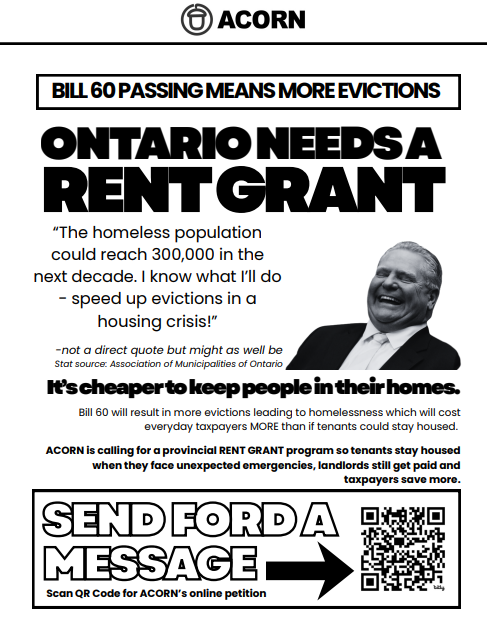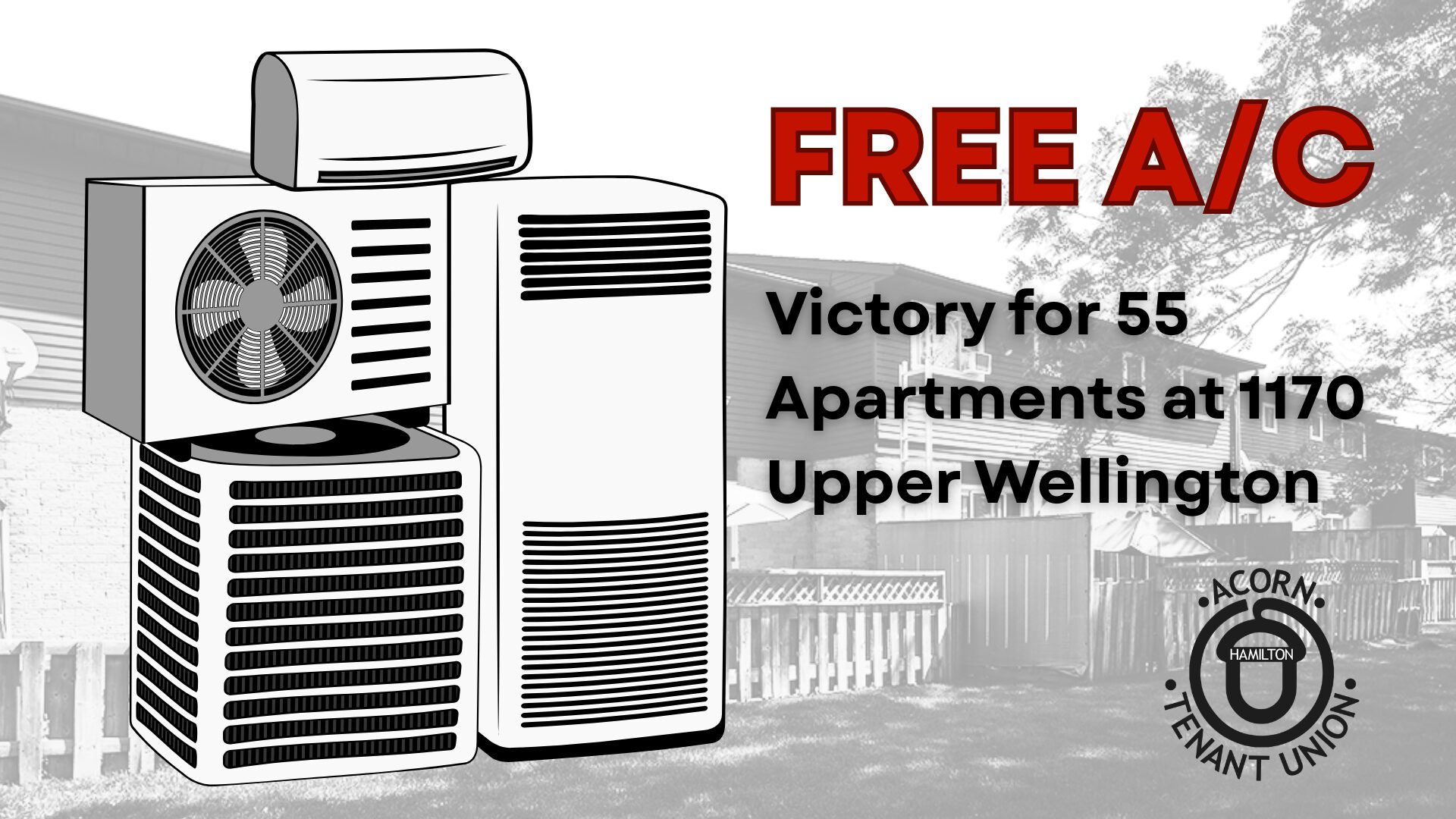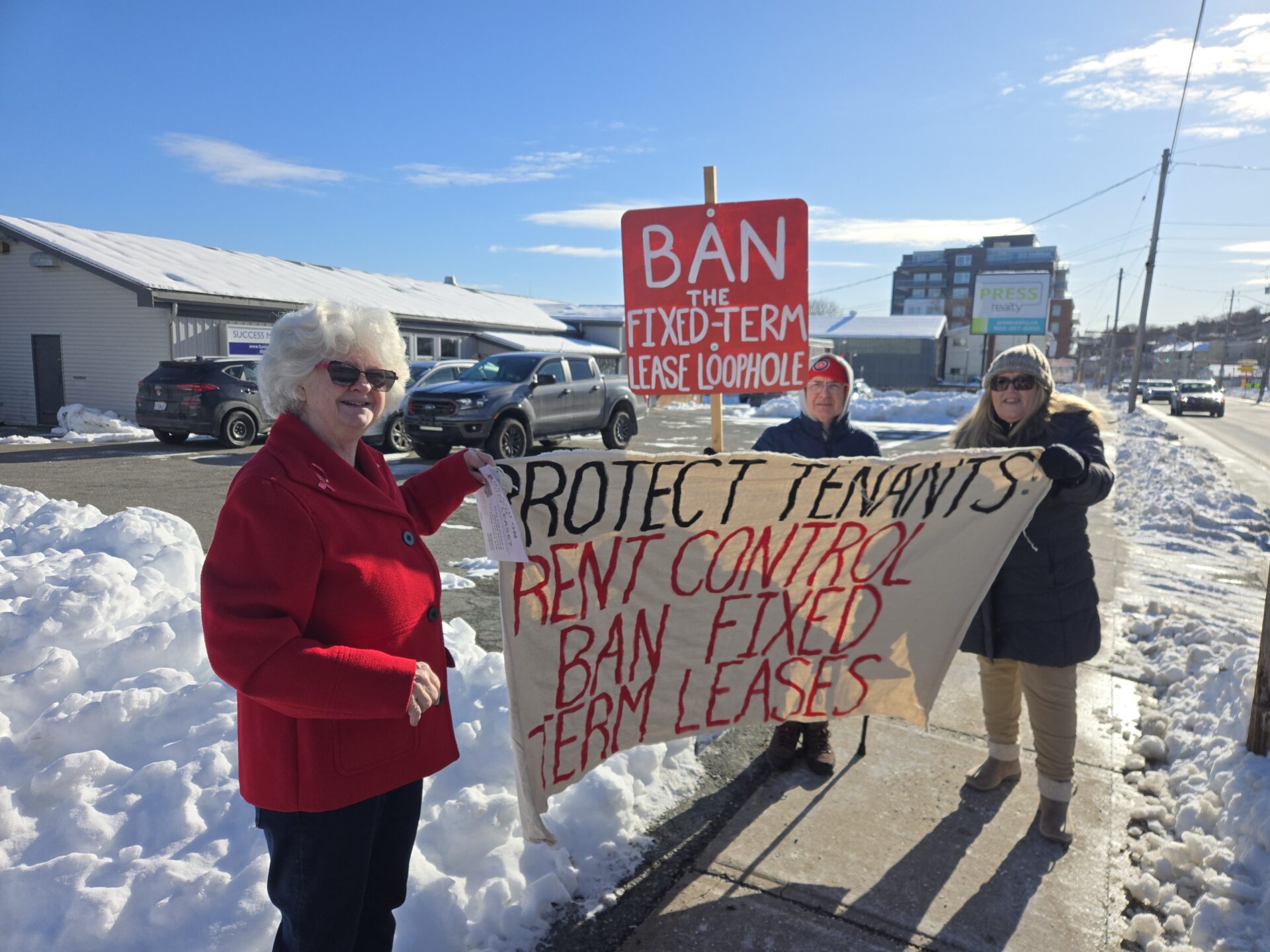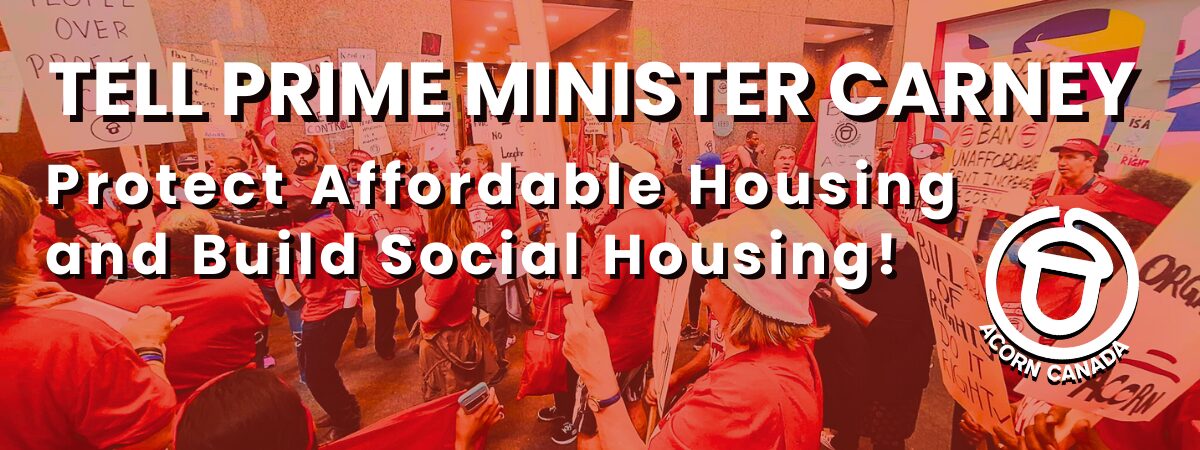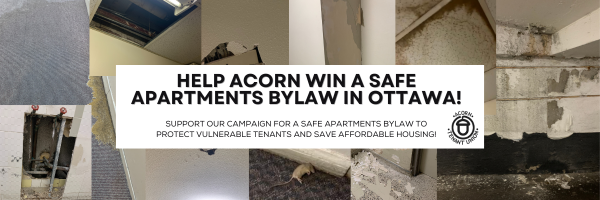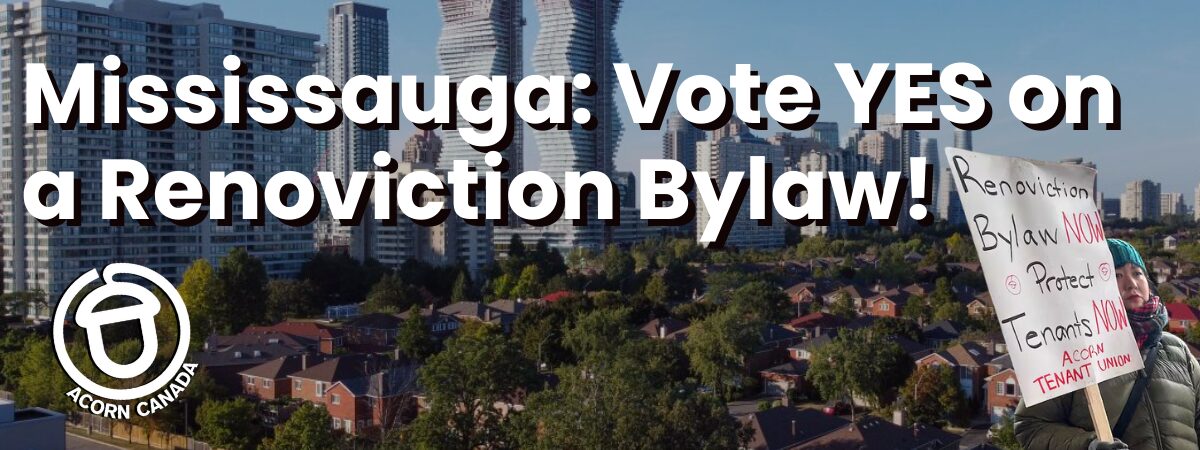Housing / Tenant Unions
Canada is in a housing crisis and it’s getting worse with the massive growth of big corporate landlords acquiring tons of apartment buildings and houses only to make profit. ACORN has been fighting corporate landlords and their investors since its foundation in 2004 and has won hundreds of millions in repairs, stopped displacement, and won protections like landlord licensing and registration, municipal anti-tenant displacement laws, stricter rent control laws, inclusionary zoning and more. However, recent phenomenon such as financialization of housing coupled with lack of full rent controls and weak tenant protections, among others continue to put low- and- moderate tenants at a greater disadvantage.

ACORN’s demands
- Ensure that any public money given to private developers is used to create housing for people who are in core housing need.
- All green infrastructure retrofit partnerships from government agencies such as the Canadian Infrastructure Bank or CMHC must include affordability and anti-eviction covenants so that the money for retrofits does not lead to unfair rent increases and evictions.
- Create a fund so that co-ops, non-profits, land trust organizations, and tenants can acquire at-risk apartment buildings on sale.
- Stop financialized landlords from buying more affordable housing. Set limits to how much housing they can acquire.
- Regulate banks, CMHC and public pension funds to stop financing corporate landlords who purchase with the intent to increase rents and displace people.
- Mandate disclosure of property ownership across all provinces.
- Mandate rent control in all provinces to disincentivize landlords from evicting long-term tenants and help maintain the units.
- Immediately plug the tax loophole in the Income Tax Act that gives massive tax exemptions to Real Estate Investment Trusts (REITs) or require them to convert 20% of each building to social housing to ensure public dollars or tax incentives go to tenants who need it the most.
- Fund social housing to ensure that low-income people have access to affordable homes.
